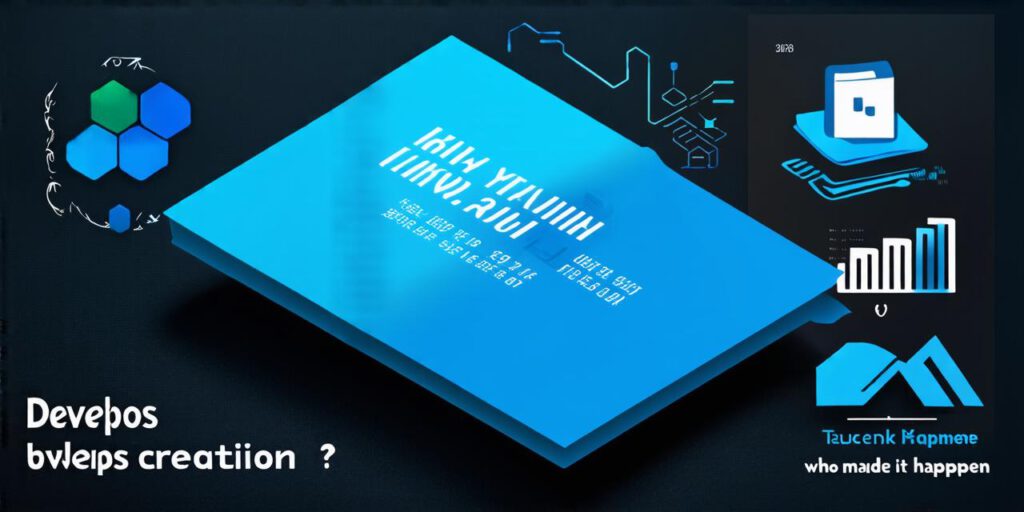DevOps, a term that refers to a set of practices and methodologies that aim to improve collaboration and communication between development and operations teams, has revolutionized software development and delivery. But who created DevOps, and what were the key factors that led to its creation? In this article, we will explore the history of DevOps and the individuals and organizations that played a crucial role in shaping it.
The Birth of DevOps: A Brief History
DevOps as we know it today can be traced back to the late 1990s and early 2000s when software development and operations teams were becoming increasingly specialized, leading to silos within organizations. This often resulted in slow release cycles, poor communication between teams, and a lack of collaboration.
In response to these challenges, a group of software professionals began to advocate for a more integrated approach to software development and delivery. In 2005, Gene Kim, Kevin Behr, and George Spafford published “The Phoenix Project,” a fictional story that depicted the benefits of adopting DevOps practices. The book quickly gained popularity among IT professionals and is widely regarded as one of the early catalysts for the DevOps movement.
In 2008, Patrick Debois, an agile software developer, organized the first DevOps conference in London, which attracted over 50 participants. This event marked the beginning of a global community of DevOps practitioners who were committed to improving collaboration and communication between development and operations teams.
Key Figures in the DevOps Movement
While many individuals have played a crucial role in shaping the DevOps movement, there are several key figures that stand out for their contributions.
Gene Kim: As the co-author of “The Phoenix Project,” Gene Kim has been a leading advocate for DevOps since its early days. He later founded ITIL, an organization dedicated to helping organizations improve their software delivery practices. Kim’s work has had a significant impact on the DevOps industry and continues to inspire practitioners around the world.
Kevin Behr: Along with Gene Kim, Kevin Behr co-authored “The Phoenix Project” and has also been an active advocate for DevOps. He is currently the director of IT management at the software company Gene Kim founded, and ITIL.
Patrick Debois: Patrick Debois is credited with organizing the first DevOps conference in London in 2008, which marked the beginning of a global community of DevOps practitioners. He has since continued to advocate for DevOps practices and has published several books on the topic.
Julie Bell: Julie Bell is a software developer who was one of the early adopters of DevOps practices. She has since become an active advocate for the movement, speaking at conferences and writing about her experiences with DevOps.
Real-Life Examples of DevOps in Action
Now that we have a better understanding of the history and key figures in the DevOps movement let’s look at some real-life examples of DevOps in action:
- Netflix: Netflix is widely regarded as one of the most successful companies to adopt DevOps practices. They have been using continuous integration and deployment (CI/CD) since 2008, which has allowed them to release new features and updates much faster than their competitors. Netflix also uses a culture of experimentation and innovation, allowing developers to test and deploy new ideas quickly.
- Amazon: Amazon is another company that has successfully implemented DevOps practices. They use a variety of tools and technologies, including containerization, microservices, and serverless computing, to deliver software updates and features quickly and reliably. Amazon’s success in adopting DevOps practices can be attributed to their willingness to invest in the necessary infrastructure and technology, as well as their culture of continuous improvement.
- Spotify: Spotify has also been successful in adopting DevOps practices, using a combination of agile methodologies, cloud computing, and automation tools to deliver software updates and features quickly and reliably. Spotify’s success can be attributed to their focus on collaboration and communication between development and operations teams, as well as their willingness to experiment and iterate on their processes.
The Future of DevOps: Trends and Predictions
DevOps is a constantly evolving field, with new technologies and practices emerging all the time. Some trends and predictions for the future of DevOps include:
- Continuous Delivery and Deployment: Continuous delivery and deployment (CD/CD) will continue to be a key focus for DevOps teams in the future. With CD/CD, software updates and features can be delivered automatically and quickly, reducing the risk of errors and improving reliability.
- Machine Learning and AI: As machine learning and AI technologies become more prevalent, we can expect to see DevOps teams incorporating these tools into their processes to improve automation, testing, and analysis.
- Kubernetes and Containerization: Kubernetes and containerization will continue to be popular technologies for software delivery, as they provide a scalable and flexible way to deploy and manage applications in a cloud-based environment.
- DevOps Tooling: The DevOps tooling landscape is constantly evolving, with new tools emerging all the time. In the future, we can expect to see more specialized tools for specific areas of DevOps, such as testing and monitoring, as well as more integration between different tools.
Summary
DevOps has come a long way since its inception in the late 1990s, with many individuals and organizations playing a crucial role in shaping it into what it is today. As we look to the future, it’s clear that DevOps will continue to be an important part of software development and delivery, with new technologies and practices emerging all the time. By adopting a collaborative and agile approach to software development and delivery, organizations can improve their processes, increase reliability and speed up time-to-market.
FAQs
What is DevOps?
DevOps is a set of practices and methodologies that aim to improve collaboration and communication between development and operations teams. It is focused on automating software delivery and infrastructure changes through the entire software development lifecycle (SDLC), from building code to deploying and operating applications.
Who created DevOps?
While many individuals have played a crucial role in shaping the DevOps movement, there are several key figures that stand out for their contributions, including Gene Kim, Kevin Behr, George Spafford, Patrick Debois, Julie Bell, and others.
What is the difference between DevOps and Agile?
DevOps and Agile are related but distinct movements in software development. Agile is focused on improving collaboration and communication between development teams, while DevOps extends this to include operations teams as well. DevOps also places a greater emphasis on automation and infrastructure management.
What are the benefits of adopting DevOps practices?
Adopting DevOps practices can lead to improved collaboration and communication between development and operations teams, increased reliability, faster time-to-market, and reduced costs. It can also improve developer productivity and reduce manual labor in software delivery processes.


